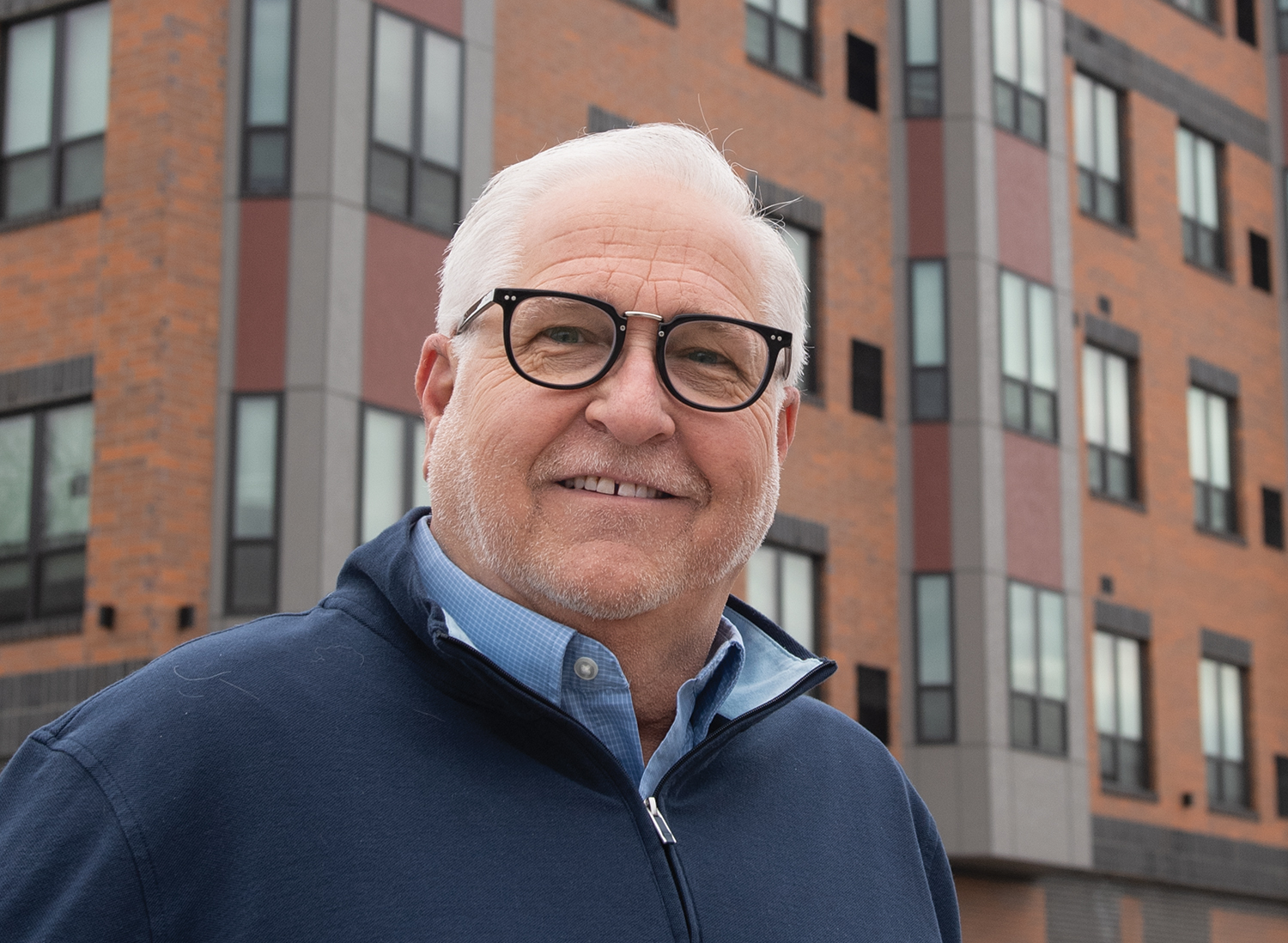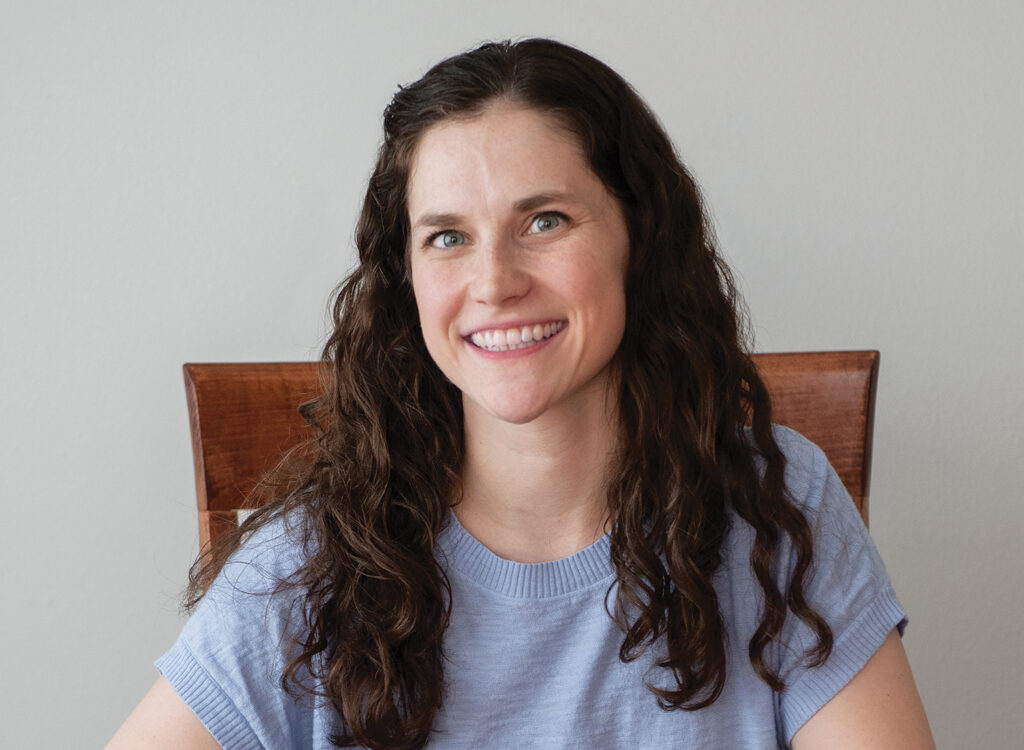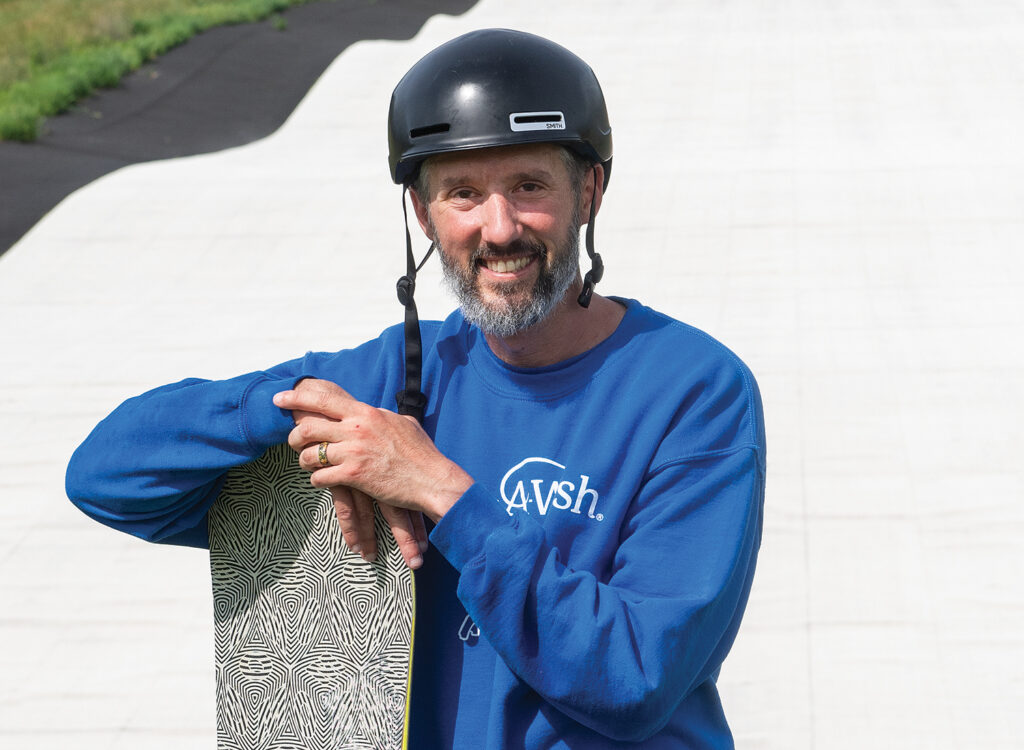Burmeister shined spotlight on affordable housing during tenure at nonprofit
The need continues to exist, says the executive director who is retiring

Kathy A. Bolten Apr 14, 2023 | 6:00 am
6 min read time
1,530 wordsBusiness Record Insider, Housing, Real Estate and DevelopmentTactfulness is one of the qualities community members want in the Polk County Housing Trust Fund’s next executive director.
That doesn’t surprise Eric Burmeister, who is retiring in June after 12 years as the nonprofit group’s executive director.
“Being a little more diplomatic and less prickly would probably be a good thing,” said Burmeister, 67, who acknowledges he has aggravated numerous city officials and community members with his views on affordable housing.
Burmeister, though, said he’s not apologetic about shining a bright light on Central Iowa’s need for more housing that entry-level office workers, young professionals and people who work in the service industry can afford. And as he prepares for retirement, Burmeister continues to speak bluntly about affordable housing.
“People who are comfortable … don’t want to create discomfort for themselves,” said Burmeister, a lawyer who for three decades worked in real estate development and finance. “Folks that have a house that has appreciated 200% since they bought it, who know their neighbors, like the schools that their kids are in, don’t like it when someone comes in and says, ‘We really need to increase the density of this community in order to provide housing that is affordable to a wider range of families.’ The response is ‘Not in my backyard.’”
Burmeister began his role as the Polk County Housing Trust Fund’s executive director during a time when affordable, or workforce, housing wasn’t on the radar of many community and elected officials. But persistent prodding by Burmeister and others in the affordable housing community has made the issue a priority.
For instance, the city of Waukee in 2022 bought 15 acres of vacant land on which to develop housing for low- and moderate-income families and senior citizens. The city of West Des Moines has started new initiatives to help people with moderate incomes buy houses or make improvements to existing homes and is partnering with area banks to provide money for a down payment assistance program. About four years ago, Des Moines began allowing accessory dwelling units in some residential areas.
The Polk County Housing Trust Fund was a sponsor of a workforce housing study released in 2019 that showed Polk, Dallas, Warren and Guthrie counties need to add 33,592 owner-occupied housing units of all types as well as 23,577 new rental units before 2038. The study also showed that 70% of the area’s new households would have annual incomes of less than $75,000.
The need for affordably priced housing “is happening now,” Burmeister said. “And we need to do something now.”
Opportunities exist to raze underutilized retail strip centers and redevelop them into housing and “right-sized” commercial space, Burmeister said. “You can literally master-plan these pieces of land. You can have expensive condos, apartments that are affordable and some retail. … Frankly, the neighbors would probably rather have anything in these aging retail spaces than what’s there now.”
Burmeister said the housing trust fund’s next executive director needs to be bold and flexible.
The new executive director “needs to understand that there’s not a magic bullet to solve this and that there’s more than one solution,” he said.
After he retires, Burmeister plans on leaving Iowa, although an exact location hasn’t yet been selected. He was an adjunct instructor at Grand View University for several years and would like to continue in that role at another institution.
“My next chapter will be an adventure where I can contribute to my community, wherever that might be,” he said.
We recently caught up with Burmeister.
When you started at Polk County Housing Trust Fund, what did the term “affordable housing” mean to the organization, and what does it mean now?
What affordable housing meant in 2010 was asking what existing organizations like Habitat for Humanity and Home Inc. needed to do their work. Not whether their work was the right work, just what do they need to do their work. And that’s what we did. We said, “Here’s how much money we have this year, who are we going to give it to?”
Now what affordable housing means to this organization is that housing is really foundational to the success of our region, our community. It’s connected to health. It’s connected to education. It’s connected to workforce. … If folks have housing stability, they’re going to be successful in many other areas of their life and the community is going to benefit from it.
We’ve increased our research ability from basically nothing to very robust. We’ve increased our advocacy … from nothing to probably being a pain in the butt to certain cities around the region. And we’ve increased the amount of money available for funding substantially.
Over the past 12 years, what accomplishments are you most proud of?
There are three things. The first is a campaign called “Can I Be Your Neighbor.” It was originally put together by us to counteract a lot of the ugliness that was happening at neighborhood association meetings when developers were … explaining to neighborhoods about new projects.
The second one is what I call the Justice Center Project – the pandemic program where we stepped up and sat down at the eviction court and basically wrote checks to keep people from losing their homes. [The Polk County Housing Trust Fund paid the back rent owed by people in the process of being evicted.] That was a place I’d never thought we’d go, simply because we are not a program provider. The impact was huge. …
The third is “Undesign the Redline,” [an exhibit and video series that shows how redlining shaped Des Moines.] That grew out of an interest I and [others] had from a historical standpoint. Putting that together and seeing the interest the community had in understanding that part of the history of the city of Des Moines and its housing was amazing.
Those three all brought humanity to the issue. It was talking, not about bricks and mortar; it was putting a face on those people. They are not bad people. They are not lazy people. They are not people who make bad decisions. They are people who serve you your coffee, take care of your kids, take care of your elderly parents and just need financial help in housing stability. That’s the thread that runs through those three.
What still needs to be done?
We are losing ground every year in terms of absolute numbers of affordable housing, particularly in the multifamily area. That is caused by two things: a growing population that is not able to get on the homeownership ladder and an increase in that low- to low-middle-income household moving into Central Iowa.
If I had to point to the most important study that [the Polk County Housing Trust Fund] helped sponsor, it would be the 2019 workforce housing study. That’s the one we need as a community, to keep coming back to and recognizing the seriousness of those predictions: 75% of the new households being created in Polk County between now and 2035 will be making under $75,000 a year. That is huge. And it is happening. Take a look at the jobs that are coming into Central Iowa. They are not six-figure jobs. … Take a look at the refugee population that is coming in. These are people that are going to need … housing that is scarce. … We need to double down on supply.
Anything else left to be done?
We need to keep pushing on this idea of the geographic nexus between jobs and housing. … We’ve got to get to a point where people understand that [affordable housing] is not a burden, that it’s part of a thriving community.
What advice do you have for the next executive director of the Polk County Housing Trust Fund?
My advice is always to have fun.
I think we’ve done a really good job of educating people about affordable housing. I think that affordable housing is at the top of just about everybody’s list. But the next person is really going to have to push on strategies and solutions … and figuring out creative ways to help fund it. Whether that’s business or finding new sources of government funding, I don’t know. … The need for affordable housing is not unique to this city. It is a problem that exists in varying degrees all over the country. [The next executive director] will need to be bold and flexible and understand that there’s more than one solution.
Search for an executive director
Members of the Polk County Housing Trust’s board are in the process of interviewing candidates for the executive director’s position. An advertisement for the position says the start date for the successful candidate for the job is June 1 or earlier. The salary for the job is between $140,000 and $170,000 annually, according to the advertisement. The nonprofit’s current executive director, Eric Burmeister, has set his retirement date for June 30. The housing trust fund is also hiring a person to fill a new position: director of housing development. A primary responsibility of the new director position is to connect financial resources with Polk County’s most critical housing needs.

Kathy A. Bolten
Kathy A. Bolten is a senior staff writer at Business Record. She covers real estate and development, workforce development, education, banking and finance, and housing.











